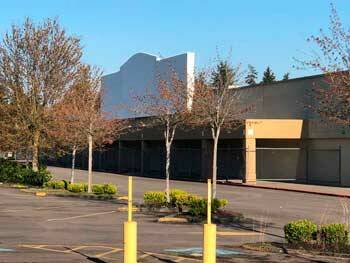By Morf Morford, Tacoma Daily Index
Not long ago I was travelling with another couple and a phrase that kept coming up was “closed or crowded”. That seemed to be what we would run into in almost any venture whether it was a meal out or any activity.
It more ways than could be counted, the last few years have been difficult.
We will be coping with and responding to those permutations of the market for many years to come.
Two impacts seem to prevail more than others; many business have closed, and those that are open are often busy. Sometimes too busy.
The problem with travelling is that you need things when you need them. At home, you can take your time, knowing that what you need is there somewhere.
But when we travel, we are at the mercy of schedules, holidays and procedures – and often needs -that we can’t always anticipate or control.
Security issues, and more recently health screenings, have only complicated an already difficult set of circumstances.
Many businesses have not made it through the gauntlet of increasing costs, supply chain choke points and evaporating customers.
But customers are coming back. And what many of us as paying customers want, or expect, may not be the same as when retailers saw us last.
One thing I have noticed in my neighborhood is that solid and basic businesses, like bakeries and hardware stores, or even old-school reliable grocery stores have been replaced by boutique dessert or ice cream shops and other specialty stores that, yes, when we get to them, are either closed or crowded.
Those more practical stores were always open (at least during their posted hours) and were rarely, if ever crowded.
In 2022, on other hand, posted hours mean almost nothing.
Stores may be closed for all kinds of reasons most of us would not have even imagined five years ago.
Staff shortages, security issues, even labor or supply problems thousands of miles away have their tangible effects on brick and mortar shops in our local neighborhoods.
And who of us would have ever imagined “Help wanted” signs on almost every door or billboard.
I recently saw a bus company with a bus parked at a local mall. They were hiring drivers on the spot.
Are you better off now than you were two years ago?
Cynical politicians are already campaigning on the slogan “Are you better off now than you were two years ago?”
Present circumstances, with higher prices at the grocery store almost every time we go in there, might pinch our budget, but compared to two years ago, most of us are, in fact far better off.
Gas and grocery prices were far lower two years ago – but that’s because many of us were not working and virtually no one was driving. With production, commuting and retail essentially at a stand-still, even with low prices, few of us were buying.
And remember the near-convulsive market back then on everything from toilet paper to Dr. Seuss books? I don’t think any of us would like to go back to those crazy months.
Gas prices have dropped steadily for many weeks now and basic commodities seem to be following suit.
Major companies, from Target to Ford are “re-organizing” (which is usually a code word for “frantically trying to figure out what is going on).
Some tech-heavy companies (like Best Buy) are struggling because so many of us bought tech equipment a year or so ago and probably won’t need to again for at least another year or two.
In short, businesses are hiring and laying off at record numbers.
Lots of companies are hiring, but decent pay and job stability are far from solid.
It’s a buyers/sellers/labor market
Construction and retail in particular seem particularly subject to the erratic whims of the marketplace.
I recently visited a large and very upscale housing project. They had model homes and a room-sized map of the entire development.
When I asked how much a particular unit cost, the sales rep said very simply, “It depends on home prices at the time.”
Perhaps that is always true, but in our times, with inflation, stag-flation, fluctuating interest rates and fluid demand, the housing market, like everything else it seems, is going in two or three directions at once.
Large scale bankruptcy on projects like those is as likely as are unparalleled profits.
Businesses don’t know what to do.
And the high-priced economists can’t decide if where we are is a reflection of where have been, a projection of where we are going or just a strange temporary economic stepping off point to whatever comes next.
Hold on for the ride.






